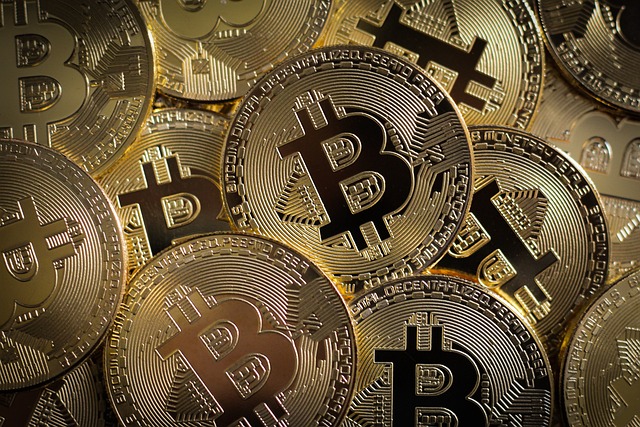Decentralized Finance Architecture Explained: A Comprehensive Guide
Decentralized Finance Architecture Explained: A Comprehensive Guide

What is DeFi and why is it important?
DeFi, short for Decentralized Finance, is a term that has been buzzing in the cryptocurrency and blockchain space for quite some time. Simply put, DeFi refers to the use of blockchain technology and smart contracts to create a financial system that is open, transparent, and accessible to everyone. It eliminates the need for intermediaries like banks and allows individuals to have full control of their funds and financial decisions.
So, why is DeFi important? Well, for starters, it provides financial services to the unbanked and underbanked population, who are often excluded from traditional financial systems. This means that individuals in developing countries or marginalized communities now have the opportunity to access various financial services such as loans, savings, and investments. DeFi also promotes financial inclusivity by removing barriers to entry and empowering individuals to take control of their financial future. Additionally, DeFi offers a wide range of innovative applications, including decentralized exchanges, lending platforms, and yield farming, which can generate attractive returns for investors. Overall, DeFi has the potential to revolutionize the way we think about and interact with money, making it an important development in the world of finance.
The basics of blockchain technology and its role in DeFi
Blockchain technology serves as the underlying infrastructure for DeFi (Decentralized Finance) applications, allowing for secure and transparent transactions. At its core, blockchain is a distributed ledger that records and verifies transactions across multiple nodes or computers. This decentralized approach ensures that there is no single point of failure and makes it extremely difficult for any malicious actor to manipulate the data. By utilizing cryptography, consensus algorithms, and smart contracts, blockchain technology enables the creation of trustless and permissionless financial protocols, laying the foundation for DeFi’s revolutionary potential.
One of the key advantages of blockchain technology in the context of DeFi is its ability to eliminate intermediaries. Unlike traditional financial systems where banks, brokers, and other intermediaries play a crucial role, blockchain-based DeFi platforms allow for direct peer-to-peer transactions.

Understanding the key principles of decentralization in finance
Decentralization is a core principle in the world of finance, and it plays a significant role in the emergence of decentralized finance (DeFi). At its core, decentralization stands for the idea of distributing power and decision-making across a network, rather than having a central authority or intermediary in control. In the context of finance, this means that transactions, investments, and other financial activities take place on a peer-to-peer basis, eliminating the need for traditional intermediaries like banks or brokerage firms.
By shifting away from centralized structures, decentralization has the potential to offer numerous advantages. One key principle is that it enables greater transparency, as all transactions within a decentralized network are recorded on a public blockchain ledger. This transparency not only fosters trust among participants but also eliminates the opacity often associated with traditional financial systems. Moreover, decentralization offers greater accessibility to financial services, particularly for individuals in underserved or unbanked regions who may otherwise have limited access to traditional financial institutions. It empowers individuals to take control of their own finances and opens up new opportunities for wealth creation and financial inclusion.
Exploring the advantages and disadvantages of DeFi architecture
Advantages of DeFi architecture include increased accessibility, transparency, and security. Unlike traditional financial systems, DeFi allows anyone with an internet connection to participate, removing barriers to entry and promoting financial inclusion. This opens up opportunities for individuals from all over the world, particularly those in underbanked regions, to access and utilize financial services. Furthermore, DeFi is built on blockchain technology, which ensures transparency by recording all transactions on a public ledger. This enhances accountability and trust, as users can verify and track their transactions without relying on intermediaries.
Additionally, DeFi offers enhanced security compared to centralized systems. With its decentralized nature, there is no central point of failure, making it less vulnerable to cyber-attacks or hacking attempts. Moreover, DeFi platforms utilize smart contracts, which are self-executing agreements that automatically execute transactions when certain predefined conditions are met. These smart contracts are built on blockchain technology, further enhancing security by eliminating the need to trust third parties or intermediaries.
The different types of DeFi platforms and how they function
DeFi platforms come in various forms, each with its own unique functionality and purpose. One type of DeFi platform is the decentralized exchange (DEX). DEXs allow users to trade cryptocurrencies directly with one another, eliminating the need for middlemen like traditional exchanges. These platforms rely on smart contracts to facilitate and execute trades, ensuring transparency and security for all parties involved.
Another type of DeFi platform is the lending and borrowing platform. This type of platform allows users to lend their cryptocurrencies and earn interest, or borrow cryptocurrencies by providing collateral. It operates based on smart contracts that auto-execute lending and borrowing transactions, removing the need for intermediaries like banks. This peer-to-peer lending model offers greater accessibility and efficiency in the borrowing and lending process.
Stablecoin platforms are yet another type of DeFi platform. Stablecoins are cryptocurrencies whose value is pegged to a stable asset like the US dollar. Stablecoin platforms allow users to issue, trade, and use stablecoins for various purposes such as payments or trading on other DeFi platforms. These platforms ensure stability in volatile crypto markets and provide a reliable medium of exchange in the world of decentralized finance.
Each type of DeFi platform brings its own unique benefits and functions, but they all share the common goal of providing users with greater financial freedom and control. As the DeFi ecosystem continues to evolve, we can expect to see even more innovative platforms emerging, catering to the diverse financial needs of users worldwide.
The role of smart contracts in DeFi applications
Smart contracts play a crucial role in the world of DeFi applications. These self-executing contracts are coded on a blockchain and automatically execute transactions based on predefined conditions. Essentially, they act as the backbone of decentralized finance by removing the need for intermediaries and enabling users to interact directly with the contract’s rules and conditions.
With the help of smart contracts, DeFi applications can provide a variety of financial services such as lending, borrowing, trading, and more, all without relying on traditional financial institutions. The transparency and immutability of the blockchain ensure that these transactions are secure and tamper-proof. Smart contracts also eliminate human error and subjective decision-making, enabling trustless and automated execution of financial agreements.

An overview of popular DeFi protocols and their functionalities
DeFi protocols have emerged as the heartbeat of decentralized finance, offering a wide range of functionalities that strive to reinvent traditional financial systems.

Another popular DeFi protocol is Aave, which provides users with the opportunity to lend and borrow cryptocurrencies without the involvement of traditional banks. More impressively, Aave utilizes a unique feature called flash loans, allowing users to borrow large sums of money without any collateral, as long as the loan is repaid within the same transaction. This groundbreaking innovation has opened up exciting new possibilities within the DeFi space and has the potential to reshape the lending industry as we know it.
The challenges and risks associated with DeFi architecture
When it comes to DeFi architecture, there are several challenges and risks that need to be addressed. One of the main challenges is the security of the decentralized platforms. Since DeFi relies heavily on smart contracts, any vulnerabilities or bugs in the code can potentially be exploited by malicious actors, leading to significant financial losses. In fact, there have been several high-profile hacks in the DeFi space, highlighting the need for robust security measures and thorough audits.
Another challenge is the lack of regulatory oversight in the DeFi ecosystem. Without clear regulations, it becomes difficult to hold bad actors accountable and protect the interests of users. This also raises concerns about money laundering and illicit activities taking place on these platforms. Moreover, the absence of legal frameworks and customer protection mechanisms can deter mainstream adoption and limit the potential growth of DeFi.
Overall, while DeFi architecture offers exciting opportunities and has the potential to revolutionize traditional finance, it is not without its challenges and risks. Addressing these issues through improved security measures and regulatory frameworks will be crucial for the sustainable growth and wider adoption of DeFi in the future.
• Security of decentralized platforms is a major challenge in DeFi architecture
• Vulnerabilities or bugs in smart contracts can lead to financial losses
• High-profile hacks have highlighted the need for robust security measures and audits
• Lack of regulatory oversight makes it difficult to hold bad actors accountable
• Concerns about money laundering and illicit activities on DeFi platforms
• Absence of legal frameworks and customer protection mechanisms hinder mainstream adoption
• Improved security measures and regulatory frameworks are crucial for sustainable growth
How DeFi is transforming traditional finance and its potential impact
DeFi, also known as Decentralized Finance, is revolutionizing the traditional finance industry. This innovative technology, built on blockchain networks, is creating a more inclusive financial system that is more accessible, transparent, and efficient for users around the world.
One of the ways DeFi is transforming traditional finance is by removing the need for intermediaries like banks or payment processors. With DeFi, individuals can directly interact with financial applications, allowing for faster and cheaper transactions. This eliminates unnecessary fees and delays, making financial services more affordable and accessible to everyone, regardless of their geographical location or socioeconomic background. Moreover, DeFi’s open and transparent nature ensures that users have full control over their funds and can easily track and verify transactions, enhancing security and trust in the financial ecosystem.
The potential impact of DeFi goes beyond just making financial services more efficient. This technology has the potential to empower underserved communities by providing them with the tools and resources to access financial services, such as borrowing, lending, or investing, that were previously out of reach for them. By removing barriers to entry and promoting financial inclusivity, DeFi can help bridge the global wealth gap and reduce inequality. Additionally, DeFi enables individuals to participate in decentralized governance, allowing them to have a say in financial policies and decisions, putting power back into the hands of the people.
With its disruptive potential, DeFi is reshaping the future of finance, challenging the traditional financial system that has long been dominated by centralized institutions. However, it is important to recognize that DeFi is still in its early stages and faces challenges and risks along the way. Regulatory and security concerns, scalability limitations, and potential market manipulation are some of the issues that need to be addressed for DeFi to reach its full potential. Nevertheless, as technology continues to advance and more innovative solutions are developed, DeFi has the potential to bring about significant transformations in the financial industry, paving the way for a more inclusive and decentralized future.
Exploring the future possibilities and innovations in DeFi architecture
The future of decentralized finance holds immense potential for innovation and growth. As blockchain technology continues to evolve, we can expect to see new and exciting developments in the DeFi architecture. One possibility is the integration of artificial intelligence (AI) to enhance the efficiency and accuracy of financial transactions. AI algorithms can analyze vast amounts of data in real-time, improving risk assessment and decision-making processes. This could lead to more secure and reliable DeFi platforms, enabling users to have greater control over their financial activities. Additionally, advancements in privacy and security protocols could bring about a heightened level of protection for user data, further increasing the credibility and appeal of DeFi.
Another exciting possibility is the development of cross-chain interoperability. Currently, different DeFi platforms are built on separate blockchains, limiting their ability to interact with one another. However, solutions are being explored to bridge this gap by enabling seamless transfer of assets and data between different chains. This would open up new opportunities for collaboration and the creation of more complex decentralized applications. Imagine a future where users can access a range of financial services from various DeFi platforms, all while maintaining control over their own assets and data. Such interoperability would revolutionize the financial landscape, making DeFi more accessible and convenient for users worldwide.
The future of DeFi architecture holds immense promise for transforming traditional finance, creating a more inclusive and efficient system. As technology continues to evolve and new innovations emerge, we can expect to see increased adoption and acceptance of decentralized finance. However, with these opportunities, it is crucial to address the challenges and risks associated with DeFi. In the following sections, we will explore these aspects in detail, providing a comprehensive understanding of the current landscape and the potential impact of DeFi on the financial industry.
What is DeFi and why is it important?
DeFi stands for Decentralized Finance, which refers to the use of blockchain technology and cryptocurrencies to create financial systems that are open, transparent, and accessible to everyone. It’s important because it has the potential to revolutionize traditional finance by removing intermediaries, reducing costs, and providing financial services to the unbanked.
What is blockchain technology and how does it relate to DeFi?
Blockchain technology is a decentralized and distributed ledger that securely records transactions across multiple computers. It plays a crucial role in DeFi by providing a transparent and immutable record of financial transactions, enabling trust and eliminating the need for intermediaries.
What are the key principles of decentralization in finance?
Decentralization in finance refers to the idea of removing centralized intermediaries like banks and allowing financial transactions to occur directly between individuals. The key principles of decentralization in finance include transparency, immutability, inclusivity, and permissionless access.
What are the advantages and disadvantages of DeFi architecture?
The advantages of DeFi architecture include lower costs, increased accessibility, improved transparency, and reduced counterparty risk. However, there are also disadvantages such as technological barriers, lack of regulation, potential security risks, and scalability challenges.
What are the different types of DeFi platforms and how do they function?
There are various types of DeFi platforms, including decentralized exchanges (DEXs), lending and borrowing platforms, stablecoins, prediction markets, and insurance protocols. These platforms use smart contracts and blockchain technology to enable peer-to-peer financial transactions without intermediaries.
What is the role of smart contracts in DeFi applications?
Smart contracts are self-executing contracts with the terms of the agreement directly written into code. In DeFi applications, smart contracts automate financial transactions, enforce rules and conditions, and eliminate the need for intermediaries, ensuring transparency and efficiency.
Can you give an overview of popular DeFi protocols and their functionalities?
Sure! Popular DeFi protocols include Ethereum, which serves as the foundation for many DeFi applications. Other protocols like Compound, Aave, MakerDAO, and Uniswap offer lending and borrowing services, decentralized exchanges, stablecoins, and more.
What are the challenges and risks associated with DeFi architecture?
Some challenges and risks of DeFi architecture include scalability issues, potential security vulnerabilities, regulatory uncertainties, smart contract bugs, and market volatility. It’s important for users to understand these risks and exercise caution when participating in DeFi platforms.
How is DeFi transforming traditional finance and what is its potential impact?
DeFi is transforming traditional finance by providing financial services to the unbanked, reducing costs, increasing accessibility, and enabling innovation in the financial sector. Its potential impact includes financial inclusion, disintermediation, and the democratization of financial systems.
What are some future possibilities and innovations in DeFi architecture?
In the future, we can expect to see advancements in scalability solutions, improved user experience, integration with traditional financial systems, increased privacy options, and the emergence of new DeFi applications solving specific financial needs. The possibilities for innovation in DeFi architecture are vast!
Todays Featured Product:
Buy, exchange and grow your crypto securely with a Ledger hardware wallet, combined with the Ledger Live app. It’s never been easier to keep your crypto safe and accessible. Buy direct from Ledger.com and get todays Special Offers Here.




